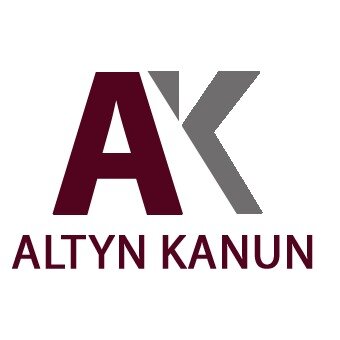Best Tax Increment Financing Lawyers in Turkmenistan
Share your needs with us, get contacted by law firms.
Free. Takes 2 min.
Or refine your search by selecting a city:
List of the best lawyers in Turkmenistan
About Tax Increment Financing Law in Turkmenistan
Tax Increment Financing (TIF) is a financial tool used by municipalities to encourage economic development by financing infrastructure and development projects. In Turkmenistan, TIF is relatively new and is part of broader efforts to stimulate investment in urban areas. The TIF mechanism involves the allocation of future increases in property taxes from a designated area to fund improvements within that area. This strategy aims to leverage projected growth in tax revenue to cover the costs of development projects.
Why You May Need a Lawyer
Engaging a lawyer specializing in TIF can be crucial for navigating the complexities of this financial tool. Legal assistance may be needed in situations such as:
- Negotiating agreements between private developers and municipal authorities.
- Understanding the legal obligations and benefits associated with TIF projects.
- Resolving disputes related to funding and resource allocation.
- Complying with local, regional, and national regulations.
- Assisting in drafting and reviewing contracts and legal documents.
Local Laws Overview
Turkmenistan's regulatory framework for TIF involves several key components:
- The establishment of TIF districts, where the financing tool can be applied.
- Criteria for qualifying projects, including impacts on economic growth and job creation.
- Requirements for stakeholder consultations and public hearings.
- Guidelines for calculating and allocating increases in tax revenue.
- Policies to ensure transparency and accountability in TIF projects.
Compliance with these laws is crucial for the success of a TIF project and for avoiding potential legal issues.
Frequently Asked Questions
1. What is the primary purpose of TIF in Turkmenistan?
The primary purpose of TIF in Turkmenistan is to stimulate economic development by financing infrastructure and revitalization projects in specific areas, thereby enhancing public amenities and attracting private investment.
2. How is a TIF district established?
A TIF district is established through a municipal resolution or ordinance, which designates an area for development and outlines the intended redevelopment projects.
3. What types of projects can be funded through TIF?
TIF can fund projects such as infrastructure improvements, public facilities, housing, and commercial developments that can drive economic growth within the designated district.
4. Who is responsible for managing TIF projects?
Local municipalities typically manage TIF projects, often in collaboration with private developers and other stakeholders.
5. How long does a TIF district remain in effect?
TIF districts typically last for a set period, often 10 to 25 years, depending on the scope of the projects and local regulatory guidelines.
6. Can residents within a TIF district be involved in the planning process?
Yes, public involvement is often required through stakeholder consultations and hearings to ensure community needs and concerns are addressed.
7. Are there risks associated with TIF projects?
Yes, risks include potential tax shortfalls, disputes over resource allocation, and failure to achieve projected economic benefits.
8. How are the increases in tax revenue calculated?
The incremental increase is calculated by comparing the new property tax revenue with the baseline revenue established at the outset of the TIF district.
9. Are there any alternative financing methods to TIF?
Yes, alternative methods include grant funding, general obligation bonds, and direct private investment, each with its specific applications and benefits.
10. How do TIF projects impact local communities?
Successful TIF projects can lead to revitalized communities, enhanced public amenities, increased employment opportunities, and overall economic growth.
Additional Resources
For more information, individuals can refer to:
- The State Committee on Land Management and Geodesy of Turkmenistan for guidance on land use and district designation.
- The Ministry of Finance for updates on funding opportunities and regulations applicable to TIF.
- Local development authorities for regional planning and project management advice.
Next Steps
If you require legal assistance in TIF, consider the following steps:
- Consult with a legal expert specializing in municipal finance and urban development.
- Gather relevant documentation and detailed information about the projected TIF project.
- Engage with local authorities to understand specific local requirements and opportunities.
- Consider consulting with financial advisors to complement the legal services and ensure the financial viability of potential projects.
Taking proactive steps and securing professional advice can help navigate the regulatory landscape and set the foundation for successful TIF projects in Turkmenistan.
Lawzana helps you find the best lawyers and law firms in Turkmenistan through a curated and pre-screened list of qualified legal professionals. Our platform offers rankings and detailed profiles of attorneys and law firms, allowing you to compare based on practice areas, including Tax Increment Financing, experience, and client feedback.
Each profile includes a description of the firm's areas of practice, client reviews, team members and partners, year of establishment, spoken languages, office locations, contact information, social media presence, and any published articles or resources. Most firms on our platform speak English and are experienced in both local and international legal matters.
Get a quote from top-rated law firms in Turkmenistan — quickly, securely, and without unnecessary hassle.
Disclaimer:
The information provided on this page is for general informational purposes only and does not constitute legal advice. While we strive to ensure the accuracy and relevance of the content, legal information may change over time, and interpretations of the law can vary. You should always consult with a qualified legal professional for advice specific to your situation.
We disclaim all liability for actions taken or not taken based on the content of this page. If you believe any information is incorrect or outdated, please contact us, and we will review and update it where appropriate.
Browse tax increment financing law firms by city in Turkmenistan
Refine your search by selecting a city.








